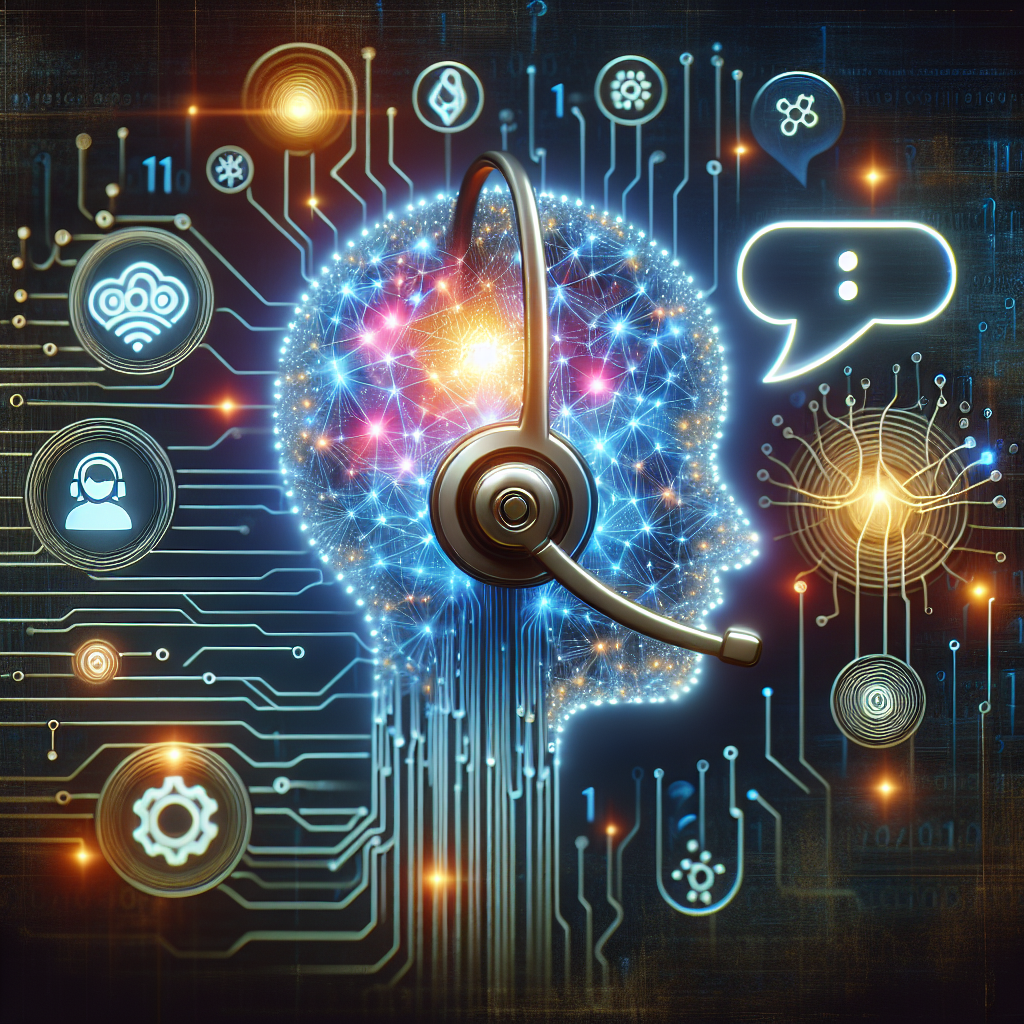In recent years, the rise of artificial intelligence (AI) has revolutionized the way companies interact with their customers. One of the areas that has seen significant impact is customer service communication. AI has transformed the way businesses handle customer queries, complaints, and feedback, making the process more efficient, personalized, and responsive. In this article, we will explore the impact of AI on customer service communication and how it is changing the customer experience landscape.
AI-powered chatbots have become a popular tool for businesses to handle customer inquiries in real-time. These chatbots are able to provide instant responses to customer queries, freeing up human agents to focus on more complex issues. Chatbots use natural language processing (NLP) and machine learning algorithms to understand and respond to customer queries accurately and efficiently. This has led to a significant reduction in response times and improved customer satisfaction rates.
AI has also enabled businesses to personalize their customer interactions at scale. By analyzing customer data and behavior, AI algorithms can create personalized recommendations, offers, and responses tailored to each individual customer. This level of personalization not only enhances the customer experience but also helps businesses build stronger relationships with their customers, leading to increased loyalty and retention rates.
Furthermore, AI has made customer service communication more proactive. AI algorithms can analyze customer data to predict potential issues before they arise and proactively reach out to customers to address them. For example, AI-powered systems can detect patterns in customer behavior that indicate dissatisfaction and prompt businesses to intervene before the customer reaches out with a complaint. This proactive approach not only prevents customer churn but also showcases the business’s commitment to customer satisfaction.
Another significant impact of AI on customer service communication is the automation of repetitive tasks. AI-powered systems can automate routine customer service processes, such as ticket routing, issue resolution, and follow-up communications. This automation not only saves time and resources but also ensures consistency and accuracy in customer interactions. By offloading repetitive tasks to AI, human agents can focus on more strategic and value-added activities, such as building relationships with customers and solving complex issues.
In addition to improving customer service communication, AI has also enhanced the overall customer experience. AI-powered systems can provide 24/7 support, ensuring that customers can get assistance whenever they need it, regardless of the time of day. This round-the-clock availability not only increases customer satisfaction but also helps businesses cater to a global customer base across different time zones.
Furthermore, AI has enabled businesses to leverage data analytics to gain actionable insights into customer behavior and preferences. By analyzing customer data, AI algorithms can identify trends, patterns, and opportunities that businesses can use to improve their products, services, and customer interactions. This data-driven approach allows businesses to make informed decisions that are aligned with customer needs and expectations, ultimately leading to a better customer experience.
Despite the numerous benefits of AI in customer service communication, there are some challenges and concerns that businesses need to address. One of the main concerns is the potential for AI to replace human agents entirely, leading to a loss of the human touch in customer interactions. While AI can handle routine tasks efficiently, human agents are still essential for handling complex issues, empathizing with customers, and building relationships. Businesses need to strike a balance between AI and human agents to ensure a seamless and personalized customer experience.
Another challenge is the potential for bias in AI algorithms. AI systems are trained on historical data, which may contain biases that can inadvertently impact customer interactions. Businesses need to ensure that AI algorithms are developed and trained in an ethical and transparent manner to avoid biases and discrimination in customer service communication. Regular monitoring and auditing of AI systems are essential to identify and address any biases that may arise.
In conclusion, AI has had a significant impact on customer service communication, transforming the way businesses interact with their customers. From AI-powered chatbots to personalized recommendations, proactive outreach, and automation of repetitive tasks, AI has revolutionized the customer experience landscape. By leveraging AI technologies effectively, businesses can enhance customer satisfaction, loyalty, and retention rates while gaining valuable insights into customer behavior and preferences. However, businesses must be mindful of the challenges and concerns associated with AI and take proactive measures to ensure a positive and ethical customer experience.
FAQs:
Q: How can AI improve customer service communication?
A: AI can improve customer service communication by providing instant responses to customer inquiries, personalizing interactions, proactively addressing potential issues, automating repetitive tasks, and leveraging data analytics to gain insights into customer behavior and preferences.
Q: What are the benefits of AI in customer service communication?
A: The benefits of AI in customer service communication include improved response times, personalized interactions, proactive outreach, automation of repetitive tasks, round-the-clock support, data-driven decision-making, and enhanced customer experience.
Q: What are the challenges of AI in customer service communication?
A: Some challenges of AI in customer service communication include the potential for AI to replace human agents entirely, biases in AI algorithms, loss of the human touch in customer interactions, and concerns about data privacy and security.
Q: How can businesses mitigate the risks associated with AI in customer service communication?
A: Businesses can mitigate the risks associated with AI in customer service communication by striking a balance between AI and human agents, ensuring transparency and ethics in AI development, monitoring and auditing AI systems regularly, and addressing biases and discrimination in customer interactions.

